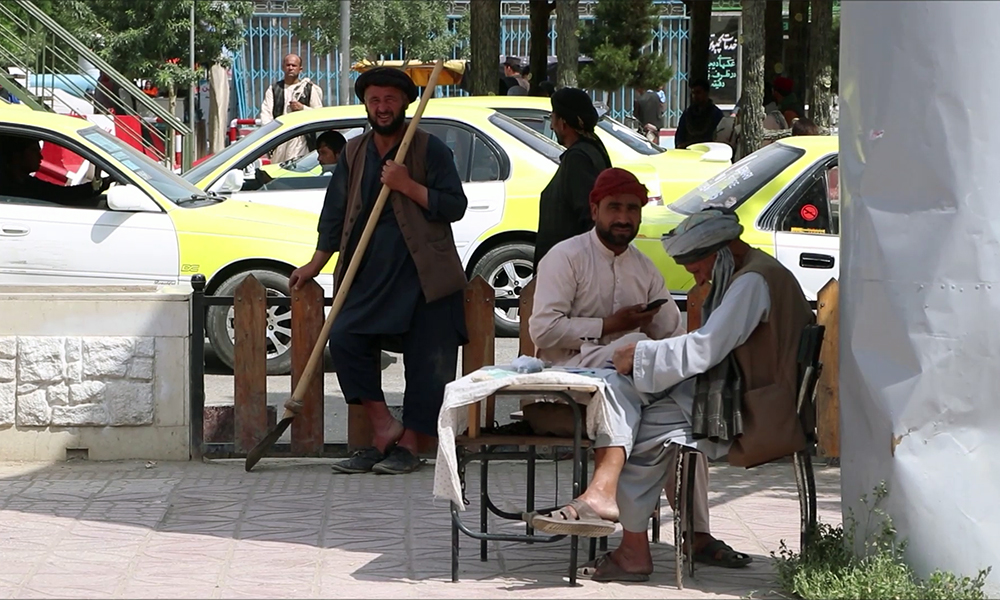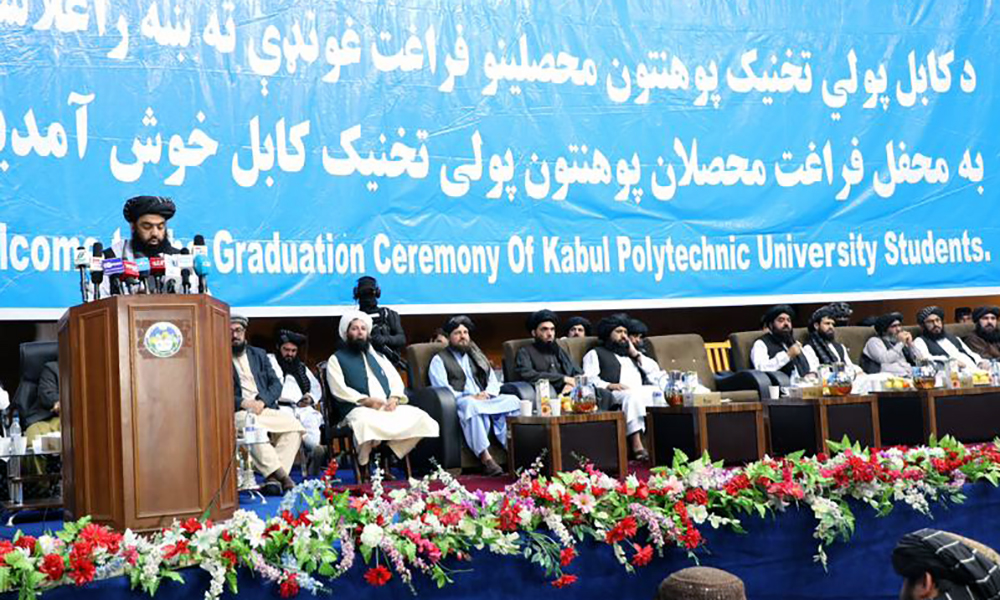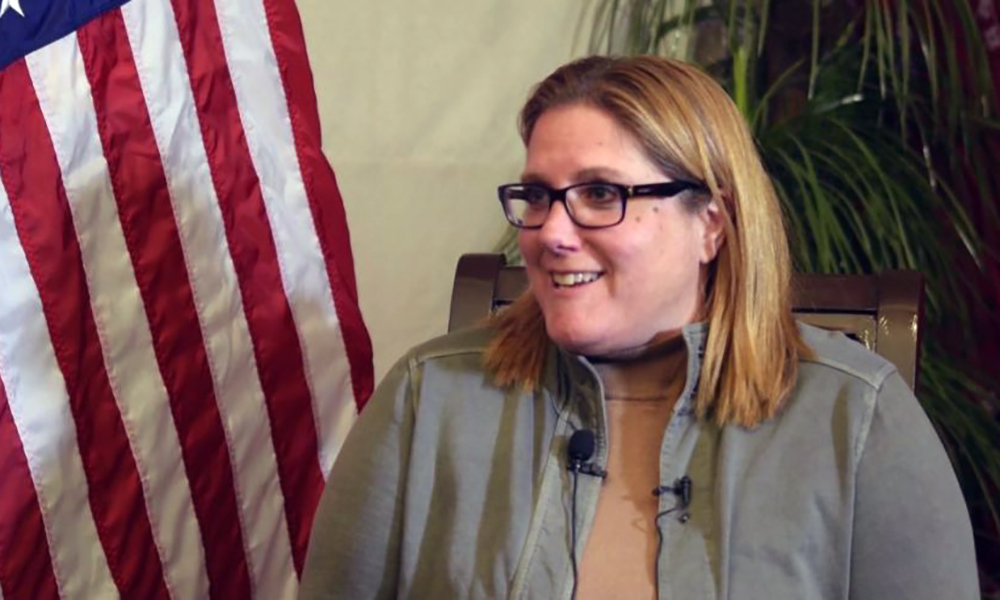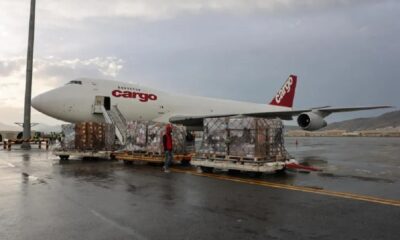Latest News
Afghanistan’s contracted economy faces uncertainty: World Bank

The Afghan economy is expected to hover around no-growth territory this year, amid uncertainty after contracting by 25% since August 2021, while Islamic Emirate of Afghanistan’s (IEA) restrictive policies on women’s education and work will further lower the country’s growth prospects, says the World Bank in a report released Tuesday.
The report titled Uncertainty After Fleeting Stability, shows how Afghanistan’s economic downturn has affected all sectors. Services, which make up 45% of the country’s GDP, shrank by 6.5% last year, following a staggering 30% drop in 2021. The agriculture sector, which accounts for 36% of GDP, declined by 6.6% in 2022 due to unfavorable weather conditions and farmers’ lack of resources to cope.
The industrial sector also saw a contraction of 5.7% last year, as businesses—especially those owned by women—faced closures due to limited access to resources and financial challenges. Following a record high in 2022, exports have been declining this year while imports remain robust, resulting in a growing trade deficit, the World Bank said.
Dampened demand, better supply conditions, and a stronger currency caused inflation to sharply decline from its 18.3% peak last July, leading to deflation since April 2023. Although deflation may initially increase real wages, prolonged deflation could stifle business growth and increase unemployment, the bank warned.
A potential reduction in international aid due to fiscal pressures in donor countries and the restrictive policies on women and girls pose risks to Afghanistan’s recovery, as do concerns about stability of the banking sector and dysfunctional payments system, the report said.
“Afghanistan’s economy is fragile, relies heavily on external support and its private sector is weak,” said Melinda Good, World Bank Country Director for Afghanistan. “To recover, the country needs to prioritize spending on human capital, basic services and climate resilience and address harmful gender policies.”
According to the World Bank’s latest Afghanistan Welfare Monitoring Survey, also released Tuesday,one in two Afghans remain poor and recent gains in welfare have come at the cost of possibly exhausting all coping strategies and household resources.
Since the economic crash of 2021, households report an improvement in their capacity to meet basic needs, but deprivation and vulnerability remain high. Afghan households have mobilized extra labor to make ends meet, mainly among youth and women. The overall increase in labor supply has outpaced demand, doubling unemployment.
While improved security has increased primary school attendance and narrowed gender and rural-urban gaps, millions of primary-school-age girls and boys remain out of school mainly due to a lack of access. Since the ban on female secondary school attendance was imposed, only 3% of girls attend secondary school. Among boys aged 13-18, only 44% are receiving a secondary education, World Bank said.
“Afghanistan’s future growth potential hinges on improving human capital. What is happening to secondary education is a cause of grave concern,” added Good. “Almost no girls and less than half of the country’s boys are getting a secondary education. Where will the teachers and doctors of tomorrow come from? A country cannot grow if it willingly foregoes the potential of its citizens.”
Latest News
Save the Children sends plane with 92 tonnes of medicines to Afghanistan

A plane carrying 92 tonnes of vital medicines has arrived in Afghanistan to treat about 675,000 people, including children, with life-threatening but treatable illnesses after an increase in respiratory infections and measles this year, Save the Children said on Tuesday.
The consignment – the largest delivered by Save the Children in a year – will provide lifesaving treatment for nearly 400,000 children afflicted by endemic childhood illnesses such as respiratory tract infections, pneumonia, acute watery diarrhoea, and skin diseases, the organization said in a statement.
Since the beginning of 2024, more than 1,000 children under the age of 5 have died after contracting pneumonia, comprising 88% of all deaths from respiratory infection.
The current number of cases is higher than the average number reported during the past three years, according to the World Health Organisation.
The number of measles cases among children under five has risen by 44% compared with the same period last year, the statement said.
“Too many children in Afghanistan die from easily preventable diseases and illnesses. The arrival of these medicines means that more than 400,000 children will receive potentially lifesaving treatment in some of the most remote areas of the country,” said Arshad Malik, Country Director for Save the Children in Afghanistan.
He added that every day around the world, roughly 16,000 children under the age of 5 will die from common illnesses that can be prevented and treated.
The medicines, which are worth about US $590,000, were donated by the Dutch Relief Alliance (DRA), the European Union Humanitarian Aid (ECHO), the German Federal Foreign Office (GFFO), USAID’s Bureau for Humanitarian Assistance (BHA) and Save the Children’s internal Humanitarian Fund, among other organisations.
Latest News
Kabir reiterates IEA will not give in to international pressure

Mawlavi Abdul Kabir, the political deputy prime minister, said on Tuesday that the Islamic Emirate will not give in to international pressure and will not take orders from any country.
Speaking at the graduation ceremony of Kabul Polytechnic students, Kabir said that transit within the region is not possible without Afghanistan and that the government is working on the issue.
Kabir also said the Islamic Emirate of Afghanistan (IEA) is working on the implementation of projects and on developing the mining sector.
He also emphasized the need to provide conditions for the return of immigrants to the country.
The Islamic Emirate’s minister of Propagation of Virtue and Prevention of Vice, Mohammad Khalid Hanafi, also spoke at the event and said the IEA is not against the development of modern sciences in the country, but that Western countries are spreading negative propaganda against the Islamic Emirate.
Nada Mohammad Nadim, Acting Minister of Higher Education, also emphasized that the Islamic Emirate was victorious on the battlefield and will also win in the field of economy, health and education.
On the other hand, some officials of the Ministry of Higher Education said that the ministry is trying to make progress in the direction of scientific and educational expansion and to be equal to global standards.
Over 530 students graduated from seventeen departments of this university, and their graduation certificates were presented by the authorities of the Islamic Emirate.
Latest News
US shows greater willingness to engage with the IEA

Washington is willing to move towards greater engagement with the Islamic Emirate of Afghanistan (IEA) as it seeks to tread a fine line between its human rights concerns and helping the Afghan people, interviews with top US officials and senior aid figures reveal.
Speaking to The New Humanitarian on the sidelines of a donor meeting in Istanbul last month, Karen Decker, chargé d’affaires of the US mission to Afghanistan, said Washington has “learned the hard way that isolation is ruinous. It’s ruinous for the Afghan people. It’s ruinous for the region”.
In the past year, the UN, several international and local NGOs, and Washington have all signaled that avoiding the Islamic Emirate won’t solve Afghanistan’s economic and humanitarian issues, The New Humanitarian reported.
This comes despite the IEA still refusing to allow girls and women to study beyond the sixth grade.
Decker told The New Humanitarian that Washington is now in a position where it must “very carefully navigate the non-recognition policy”, which requires a delicate balance of keeping in mind that the IEA took power by force rather than a democratic vote while still finding ways to reach the millions of Afghans who require emergency assistance.
One NGO source, who asked to remain anonymous, was quoted as saying by The New Humanitarian that “engagement [with the IEA] is necessary, but we have to find a way to balance engagement while not compromising on our principles.”
Decker agreed, saying Washington would continue to engage with the IEA on “pragmatic issues”, with humanitarian assistance and human rights being her primary areas of concern.
Because its non-recognition policy precludes US officials from working in the country, Washington has partnered with local and international groups on the ground to deliver assistance directly to the Afghan people.
But even with that cooperation, it’s not always so easy, as these groups must also tread carefully amid increasing IEA restrictions and regulations, The New Humanitarian reported.
Even though there is still a long way to go, particularly in terms of addressing US human rights concerns, Decker told The New Humanitarian she feels Washington’s efforts have led to some positive results.
“Eighteen months ago, we were worried about famine, and there is no famine in Afghanistan,” Decker said, crediting this largely to the work of local and international aid organizations.
However, she pointed out that Afghans still need more food assistance than in the past: “So, in some respects, you trade one problem for another.”
Decker raised another issue that adds to the difficulty of engaging further: the Islamic Emirate’s unwillingness to acknowledge any problems in the country: “They like to present Afghanistan as a success story… [and] they don’t want anyone thinking there’s anything wrong.”
She said if the Islamic Emirate were more straightforward to deal with, then humanitarian actors would save a lot of time and money and be able to reach those in need more quickly.
“We use a lot of time and effort making it work, because of the Taliban (IEA). They are fundamentally the challenge to making this work. We are able to navigate [it], but it would be much more efficient if the Taliban were much more [open].”
Decker did, however, give the Taliban some credit, saying they had shown some flexibility, especially in emergency situations.
She pointed to the Islamic Emirate’s responses to a series of earthquakes that rocked the western province of Herat, and the recent mass expulsions of hundreds of thousands of Afghans from neighboring Pakistan, as examples of when the IEA saw it necessary to amend or loosen some of their restrictions, The New Humanitarian reported.
“Women were suddenly allowed to work because they had to reach women beneficiaries,” she said.
While engagement efforts have sparked widespread criticism, all the sources The New Humanitarian spoke to said they saw little benefit in pretending the Islamic Emirate does not exist.
With an “overwhelming need in the country”, simply ignoring the IEA will do nothing to improve the lives of the millions of Afghans who remain in need, said Decker.
“It’s not in anyone’s interest for us to isolate the country,” she added. “And I say this over and over: I feel strongly that if the United States does not advocate for the Afghan people, nobody will. So, I don’t need any more motivation than that.”
The New Humanitarian reached out to the Islamic Emirate’s Ministry of Foreign Affairs for comment on several matters related to the issue of engagement, but it failed to respond.
Decker and other sources did however, express some hope based on private meetings and the public statements of several high-ranking Islamic Emirate officials, who have acknowledged that all girls and women should be allowed to return to school and that the government must expand beyond just the IEA.
“We know that there [are] senior Taliban leaders who have their daughters in school outside of the country, and some of them have even been open in their own statements about the importance of education,” said Decker.
However, for progress to be made towards US recognition, she said the Islamic Emirate must officially change some of its policies, pointing to increased work opportunities for women and real inclusion of non-IEA members in the government as concrete examples of possible game-changers.
-

 Sport5 days ago
Sport5 days agoAfghanistan beat Iraq 5-3, inch closer to Futsal World Cup berth
-

 Latest News4 days ago
Latest News4 days agoPakistan extends registered Afghan refugees’ stay till June 30
-

 Regional5 days ago
Regional5 days agoNew UK sanctions target Iranian drone industry
-

 Regional4 days ago
Regional4 days agoChina to host Hamas, Fatah for Palestinian unity talks
-

 Sport3 days ago
Sport3 days agoAfghanistan qualify for FIFA Futsal World Cup for first time ever
-

 Latest News5 days ago
Latest News5 days agoTripartite trade meeting held in Kabul to boost regional connectivity
-

 World5 days ago
World5 days agoIn Beijing, Blinken meets Xi and raises US concerns about China’s support for Russia
-

 Latest News4 days ago
Latest News4 days agoUS diplomat Bass travels to Qatar and Pakistan to discuss Afghanistan, regional issues
























